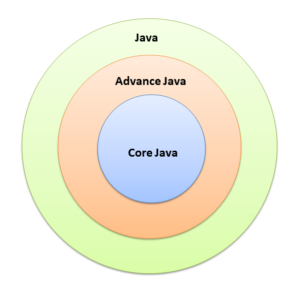Differences between Java, Core Java, and Advanced Java
Categories: Programming

Differences between Java, Core Java, and Advanced Java
What is Java?
Java is a multipurpose and general PC programming language that is,Guest Posting class-based, object-situated, as well as simultaneous and it has been explicitly intended to have as barely any execution conditions as could really be expected. The language has been expected to let application engineers utilize the fundamental component that it has been promoted for "compose once, run anyplace" (WORA), and this implies that ordered Java code can run on all stages that help Java with the execution of JVM (Java Virtual Machine) without the requirement for recompilation.
Various Editions of Java Platform:
J2SE (Java Platform, widespread version)
Otherwise called Core Java, this is the most essential and the most standard form of Java that you can experience. It's additionally called the understudy's level java and is shown in schools. It is the most perfect type of Java, a fundamental starting point for any remaining releases. The language essentially comprises of a wide assortment of broadly useful API's (like java.lang, java.util) and it likewise contains numerous specific reason APIs. J2SE is principally used to make applications that run under the Desktop climate. It comprises of the multitude of fundamentals of Java: the language, crude information types, Arrays, Streams, factors, Strings Java Database Connectivity(JDBC) and significantly more. This is the norm, from which any remaining releases emerged, as indicated by the necessities of the time.
J2EE (Java Platform, organisation version)
The Enterprise based form of Java is likewise called as Advanced Java, has a lot bigger use of Java, for example, the different improvement of web administrations, organizing, server-side prearranging, and other different electronic applications. As the name proposes, Enterprise Java is utilized to plan and foster endeavor level applications that are utilized by numerous associations and organizations. J2EE is a local area driven release or form, that is there is a ton of consistent commitments from industry specialists, Java engineers, and other open source associations. J2EE utilizes a large number of J2SE, as well as, has many new elements of its own, for example, Servlets, JavaBeans, Java Message Services, and it adds an entirely different rundown of energizing highlights and functionalities to the language. J2EE utilizes HTML, CSS, JavaScript, and so forth in order to make site pages and web administrations. It's additionally one of the most generally acknowledged web advancement guidelines.
J2ME (Java Platform, Micro Edition)
This variant of Java is principally confined and zeroed in on the applications running on implanted frameworks, mobiles and little gadgets. Additionally, the J2ME applications help in using the web pressure advances, which thus, diminish network use, and subsequently it empowers the element of modest web openness. J2ME utilizes numerous libraries and API's of J2SE, as well as, its very own significant number. The fundamental point of this version was to work flawlessly and instinctively on mobiles, remote gadgets, set-top boxes, and so on. Old Nokia telephones, which utilized Symbian OS, utilized this innovation.
J2ME (Java Platform, Micro version):
Beside these three adaptations, there was another Java form that was delivered, Java Card. This release was designated to run applets easily and safely on savvy cards and comparative innovation. Security, as well as conveyability, was its primary element.
JavaFX is a version of Java innovation, that has now been converged with J2SE. It is vigorously engaged and basically utilized, to make rich GUI (Graphical User Interface) in Java applications. It gives an option in contrast to the fundamental Swings (in J2SE), with itself as the standard GUI library. Support has been given by both Desktop climate as well as internet browsers.
PersonalJava was another Java based release, which was not sent a lot, as its capability was satisfied by additional forms of J2ME. This rendition of Java has been made to help the World Wide Web (and Java applets) and shopper gadgets. PersonalJava was additionally utilized vigorously for implanted frameworks and portable. Yet, it was ended in its previous stages.
Java is a flexible and generally utilized programming language. While examining the distinctions between "Core Java" and "High level Java," it is critical to take note of that these terms are not generally perceived or normalized. Notwithstanding, it is feasible to give a general comprehension of what they could allude to considering normal use in the business. Here is a breakdown:
Core Java:
- Core Java refers to the fundamental concepts, syntax, and libraries that are part of the Java Standard Edition (Java SE). It encompasses the basic building blocks of the language and its core APIs.
- Core Java covers topics such as data types, variables, control structures, object-oriented programming (OOP) ideas (classes, objects, legacy, polymorphism), exception handling, I/O operations, and basic multithreading.
- It incorporates fundamental libraries like java.lang, java.util, java.io, and java.net, among others.
- Core Java is viewed as the establishment for all Java applications and fills in as an essential for learning further developed Java topics.
Advanced Java:
- Advanced Java generally refers to more specialized or advanced topics and libraries that build upon the foundation of Core Java.
- It typically covers enterprise-level development, web application development, database connectivity, and advanced concepts related to Java Enterprise Edition (Java EE) or Jakarta EE.
- Advanced Java topics may include Servlets, JavaServer Pages (JSP), Java Database Connectivity (JDBC), Java Persistence API (JPA), Java Messaging Service (JMS), Enterprise JavaBeans (EJB), and JavaServer Faces (JSF), among others.
- Advanced Java focuses on building robust, scalable, and distributed applications for enterprise environments and web development.